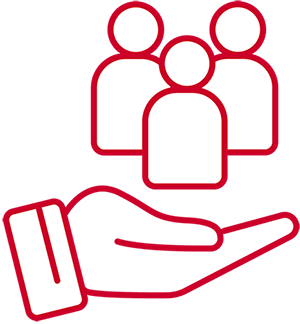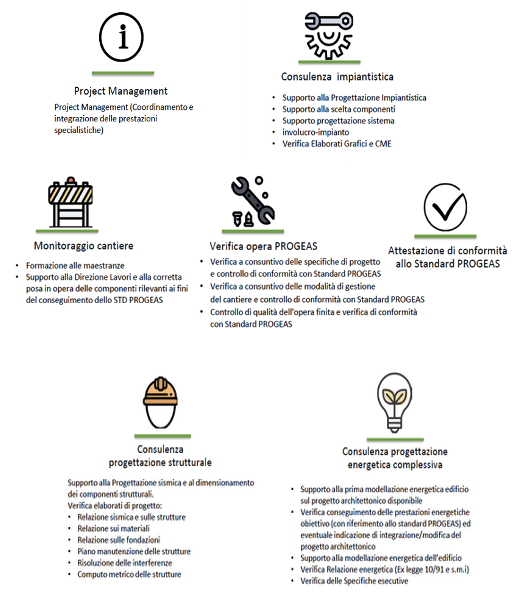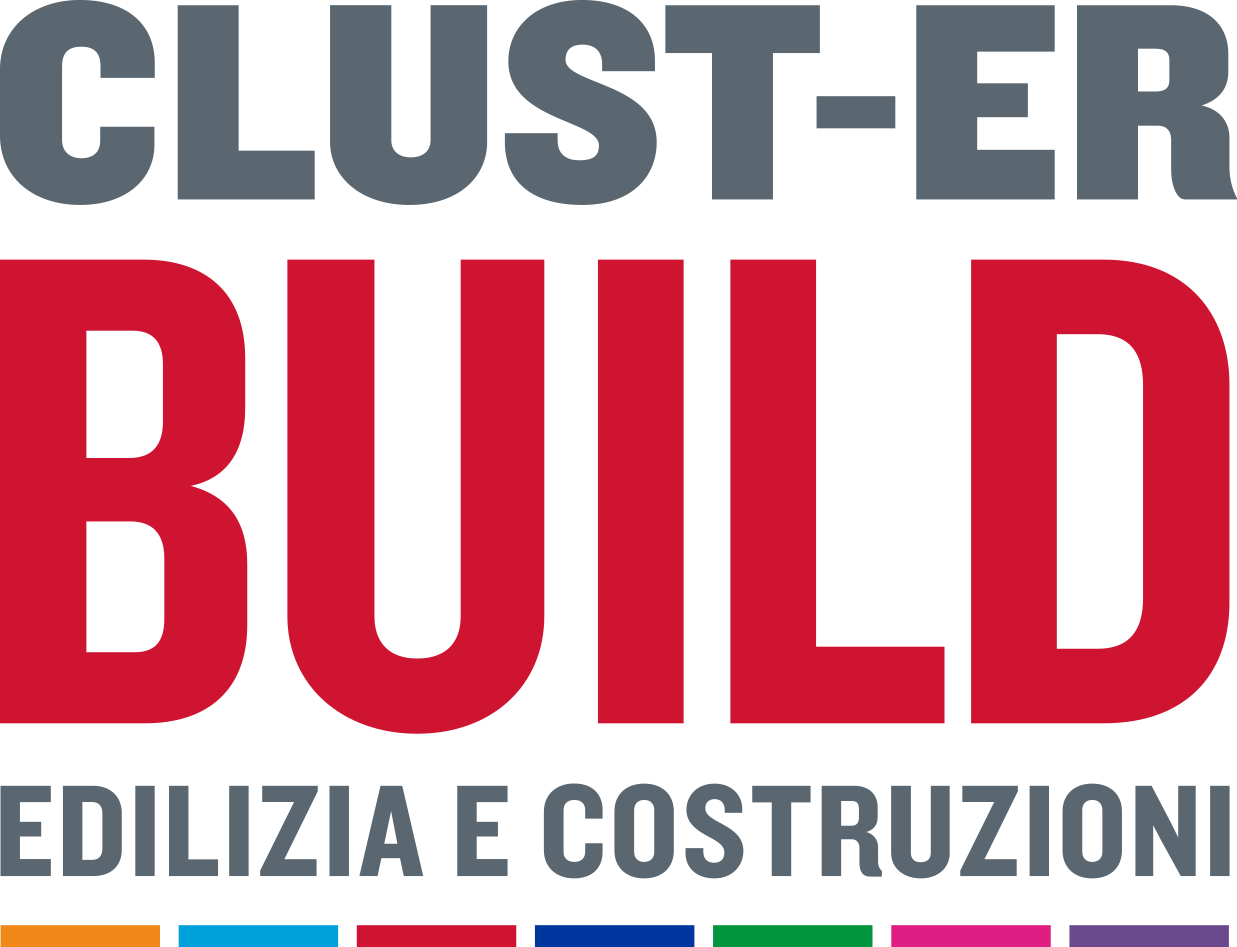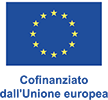
The Cluster-ER BUILD, located in the dynamic Emilia-Romagna region, represents a collaborative ecosystem dedicated to promoting and developing innovative projects in the field of sustainable construction and new technologies applied to building. This cluster, born from the synergy between companies, institutions, and research centers, aims to catalyze innovation and research to create advanced solutions in the construction sector.
1. New European Bauhaus Unlocked through Built4People partnership (B4P) endorsed Local Actions
2. Decarbonisation: training for ecological transition in the construction sector
3. Project Proposal for CSA (Coordination and Support Action) for the Creation of a Resilient and Resource-Efficient Industry at the European Level
4. Resilient System for the Recognition of Energy Skills
5. Skill to Boost Innovation and professional fulfiLLment in a sustainable economy
6. Common Learning outcomes for European managers in construction VI
7. PROGEAS
1. New European Bauhaus Unlocked through Built4People partnership (B4P) endorsed Local Actions
Project Acronym: NEBULA
Project Title: New European Bauhaus Unlocked through Built4People partnership (B4P) endorsed Local Actions
Funding Program: HORIZON EUROPE (CSA)
Lead Partner: Dowell Innovation
Partnership: ECTP Innovative Built Environment; World Green Building Council; Architects Council of Europe; Nobatek/INEF; TECNALIA; R2M Solutions; Odeys Cluster construction et amenagement durable; Eraikune Construction Cluster.
Website: https://built4people.eu/nebula/
Cluster’s Role and Contribution: The Clust-ER BUILD participates in the project as an Innovation Cluster, alongside 15 other clusters selected from different EU member states.
The role of the Innovation Clusters is to support the dissemination of open innovation practices in the construction sector, elevating collaboration levels between diverse organizations, countries, and in an interdisciplinary approach.
Description
The objectives of the NEBULA project are:
- To promote the dissemination and adoption of the values and principles of the New European Bauhaus in the construction sector;
- To facilitate access to funding and networking opportunities for innovators through the Built4People partnership;
- To create a network of innovation hubs to improve collaborations across organizations, countries, and disciplines.
As for the actions to be developed in synergy with the network of Innovation Clusters, the following objectives are proposed:
- Accelerate the time to market of innovation in the construction sector, especially for projects funded by Horizon Europe;
- Promote cross-border collaboration and knowledge transfer among members of the B4PIC;
- Provide resources and guidance on key topics such as funding, business planning, and the effective operation and development of clusters.

2. Decarbonisation: training for ecological transition in the construction sector
Project Acronym: CarbON/OFF
Project Title: Decarbonisation: training for ecological transition in the construction sector
Funding Program: ERASMUS+ KA2
Lead Partner: Istituto d’Istruzione Professionale dei Lavoratori Edili di Bologna – IIPLE Bologna (ITA)
Partnership: –
Sito web: –
Cluster’s Role and Contribution: CLUST-ER BUILD supports the project by developing the following actions: disseminating information on the progress of key phases of the project; participating in local events, workshops, and meetings; contributing to the promotion and valorization of the project’s activities and results; participating in the strengthening of the national and international network.
Description
The CarbON/OFF project aims to improve the offering of vocational training programs (VET) by defining new tools and learning modules for profiles related to green technologies and sustainability management in the construction processes

3. Project Proposal for CSA (Coordination and Support Action) for the Creation of a Resilient and Resource-Efficient Industry at the European Level
Project Acronym: –
Project Title: Project Proposal for CSA (Coordination and Support Action) for the Creation of a Resilient and Resource-Efficient Industry at the European Level
Funding Program: Horizon Europe
Lead Partner: Cleantech Bulgaria (BL)
Partnership: Partners of the ICEI Alliance (Industrial Circular Economy Investments Alliance)
Website: https://icei-a.eu/
Cluster’s Role and Contribution: CLUST-ER BUILD aims to contribute to the project as a service provider for SMEs, leveraging its own expertise and that of its cluster members. CLUST-ER is committed to:
- Participating in European competitive calls, both directly and by facilitating the participation of its members with their specific expertise;
- Taking part in conferences, workshops, and other dissemination activities organized within the project;
- Supporting the project partnership in spreading initiatives for SMEs and project results in the territory;
- Providing feedback on the activities.
Description
The proposed project aims to harness the capabilities of European Clusters to help implement the Green Deal and maximize its impact on people’s lives and the economies of EU countries. Clean technologies and associated business models are facing an adoption rate that is too slow compared to the needs of the EU, but they are critical for sustainable development and the competitiveness of our regions. The project aims to build an accelerator for the implementation of circular and clean technologies, led by clusters and serving SMEs, to accelerate the diffusion of circular and clean innovations in areas that are crucial for the EU economy.

4. Resilient System for the Recognition of Energy Skills
Project Acronym: RES2
Project Title: Resilient System for the Recognition of Energy Skills
Funding Program: LIFE
Lead Partner: iBIMi
Partnership: FLA – Fondazione Lombarda per l’Ambiente; Ecipa scrl; Scuola Edile Artigiana Romagna; FORMEDIL; CNCE – National Paritetic Commission for Building Funds
Website: https://www.ibimi.it/res2/
Cluster’s Role and Contribution: CLUST-ER BUILD initially supported the project with a letter of support (Expression of Interest). During the project’s execution, CLUST-ER will assist with research activities related to the most in-demand skills in the market and will, in the second phase, help disseminate the project results to both its members and the innovation ecosystem active in the Emilia-Romagna region. Dissemination will be carried out through targeted communications or by organizing specific events (e.g., workshops).
Description
To achieve the 2030 energy efficiency goals for buildings, a workforce with the necessary digital and green skills is required.
In Italy, many of these skills are still lacking, both among design professionals and construction/installation and maintenance companies in the building sector.
The RES2 project, funded by the EU LIFE Program, supports decision-makers, industry professionals, and VET providers in taking the necessary steps to develop and formally recognize the digital and energy efficiency skills demanded by the market.

5. Skill to Boost Innovation and professional fulfiLLment in a sustainable economy
Project Acronym: SkillBill
Project Title: Skill to Boost Innovation and professional fulfiLLment in a sustainable economy
Funding Program: Horizon Europe
Lead Partner: AzzeroCO2
Partnership: QPlan International ; White Research ; Università degli Studi della Tuscia ; Universidad de Sevilla ; Metropolia Ammattikorkeakoulu OY ; Utrecht University ; European Renewable Energies Federation ; Pedal Consulting S.R.O. ; Sinergie soc. cons. arl
Website: https://skillbill-project.eu/
Cluster’s Role and Contribution: CLUST-ER BUILD supported the project in an initial phase with a letter of support (Expression of Interest). During the project, CLUST-ER will provide assistance in the dissemination of training initiatives by leveraging its own network of contacts.
Description
The SKILLBILL project aims to raise awareness and education levels among academia, industry, decision-makers, and civil society about the urgent need to decarbonize our societies through widespread adoption of renewable energy sources (RES).
The successful completion of this process will be achieved through training and educational tools. SKILLBILL follows an effective methodology to facilitate the participation of both adults and youth in learning activities to acquire the scientific, technical, entrepreneurial, and digital skills vital for engaging in renewable energy sources (RES).
The project aims to improve skills that can be applied in higher education and research, as well as in innovation and the formulation of better policies aimed at closing the gender gap.

6. Common Learning outcomes for European managers in construction VI
Project Acronym: CLOMEC VI
Project Title: Common Learning outcomes for European managers in costruction VI
Funding Program: ERASMUS +
Lead Partner: Politechnika Warszawska
Partnership: Technische Universität Darmstadt; University of Ferrara; Gebze Technical University; Reykjavik University; Polish Association of Building Managers; Korporacja RADEX S.A.
Website: https://www.cloemcvi.il.pw.edu.pl/?page_id=24&lang=en
Cluster’s Role and Contribution: CLUST-ER BUILD initially supported the project with a letter of support (Expression of Interest). Through collaboration with the Department of Architecture at the University of Ferrara (project partner), CLUST-ER will act as a conduit for innovation needs coming from the construction sector and will later support the dissemination of training initiatives through its network of contacts.
Description
This project is related to EU Directive 89/48/EEC on regulated professions, with a focus on the recognition, promotion, and certification of qualifications by associations and international organizations in the construction sector.
The main task of the project is to improve the ideas behind the Directive, leading to the creation of an appropriate European system for comparison, certification, and mutual recognition of managerial qualifications in the construction sector. The aim is to standardize the training profile of managers at the European level.
The launch of the Construction Managers’ Library (CML) on the European market, containing a comprehensive compilation of innovative managerial knowledge in the construction sector, will foster social dialogue on adapting educational profiles to the needs of the labor market.
At the conclusion of the project, the objective is to improve post-graduate training programs in management for the construction sector. New courses will enable the certification and recognition of skills according to the agreed European policy on qualification transparency (EuroPass), in the form of an EurBE (European Building Expert) title.

7. PROGEAS
Titolo progetto: PROGEAS
Periodo: 2022-2025 – Operational Project
Description: PROGEAS is a new integrated construction paradigm that covers the entire building lifecycle, from design to management, aimed at creating high-performance buildings that exceed current regulatory requirements. Promoted by ATMA Engineering, ICIE, and P&C Innovation, the system synergistically addresses three macro-objectives: structural resilience, construction site safety, energy efficiency, and indoor well-being, adopting a systemic (industrial) approach to construction.
 The operational objectives of PROGEAS include:
The operational objectives of PROGEAS include:
- Integration of seismic-resistant, eco-friendly, and energy-self-sufficient solutions to create low environmental impact certified buildings;
- Standardization (industrialization) of processes, materials, and quality controls in order to overcome regulatory fragmentation and promote consistency, safety, and sustainability across the entire supply chain, in line with the trajectories of Clust-ER Build;
- Drastic reduction of construction site times (up to -40÷50%) through the adoption of prefabricated components and highly industrialized automated processes.

“The PROGEAS Approach”
This approach overcomes the fragmentation of current regulatory standards (NTC, Eurocode 8, nZEB, ITACA) by proposing an integrated framework for design, prefabrication, verification, and management of buildings, enabling:
- Containment of seismic risk, thanks to the elastic-linear behavior of structures even in the case of extreme events (landslides, floods, earthquakes…);
- Optimization of environmental comfort through high-performance materials, advanced thermal/acoustic insulation, integrated systems, and smart sensors for continuous monitoring of indoor air quality.
The system resolves the complexity of traditional construction sites through prefabricated modules with high technological content. Each component – from the structural envelope to advanced windows and integrated plant systems – is designed to interact as part of a coherent and scalable building ecosystem.
In summary, PROGEAS guarantees:
- Structural safety, through seismic-resistant modular elements with high resistance;
- Maximum energy efficiency, through high-performance envelopes, VMC, heat pumps, photovoltaics, and smart management, with a positive energy balance;
- Indoor comfort and health, thanks to advanced climate control, eco-friendly finishes, and purified air;
- Climate resilience, with integrated anti-flood, anti-sinking, and anti-mold solutions, in line with standards exceeding Passive-House and nZEB.
- Integration with the BIM Information System
Scientific and Technical Committee:

Website: progeas.eu
Innovation: PROGEAS as a model of industrialization:
PROGEAS enables the transition of the construction industry from a craft-based model to an industrialized supply chain, based on prefabricated components with fast and controlled assembly, reducing the need for specialized labor on site. This approach increases productivity by shortening construction times, optimizes costs through economies of scale, enhances the available human resources, and promotes a new, more inclusive work culture, particularly welcoming to young people and women. Furthermore, the industrialization of processes contributes to the decarbonization of the sector and improves safety conditions for workers.
Services:
Aligned with the mission of the Cluster – which promotes innovation, sustainability, digitalization (BIM), circular economy, and resilience in the construction sector – PROGEAS strengthens the region’s ability to generate industrial, scalable, and sustainable construction solutions. It also helps position Emilia-Romagna as an Italian hub for advanced and pre-industrialized construction.


8. BIO.CO.R.N.ER
Acronimo progetto: BIO.CO.R.N.ER
Titolo progetto: Decarbonisation: BIO-waste for a COordinated and Regenerative New supply chain of eco-sustainable building materials in Emilia-Romagna region
Programma di finanziamento: Horizon Europe – bando a cascata (“Financial support for third parties”) progetto CIRCULOOS
Lead Partner: Centro di Ricerche Europeo di Tecnologie Design e Materiali – CETMA
Partenariato: Università degli Studi di Modena e Reggio Emilia – UNIMORE; Clust-ER Agrifood Emilia-Romagna; NTC&R.
Sito web: –
Compito e ruolo del cluster: Il CLUST-ER BUILD ha supportato il progetto in fase di scrittura individuando tra i propri soci l’azienda NTC&R e L’Università di Modena e Reggio come partner ideali data le loro competenze. In corso di svolgimento del progetto Clust-ER BUILD contribuirà a supportare lo sviluppo della filiera di economia circolare grazie alla sua stretta connessione con il tessuto produttivo regionale. Un altro importante ruolo sarà quello di facilitare il coinvolgimento degli attori dell’ecosistema regionale dell’innovazione e di promuovere il trasferimento tecnologico dei risultati verso gli attori della filiera.
Descrizione: BIO.CO.R.N.ER propone una nuova catena del valore per l’economia circolare a scala regionale che trasformi i rifiuti biologici provenienti dall’agroalimentare, dall’acquacoltura e dai residui marini in materiali da costruzione ecosostenibili.
Il progetto mira a sviluppare e convalidare due malte a basso contenuto di carbonio e a base biologica (con TRL6 e TRL8), ottenendo una riduzione del 30% dell’impronta di carbonio e integrando fino al 70% di rifiuti organici in peso. Attiverà una catena del valore circolare ed intersettoriale completamente tracciabile e multi-attore per deviare i rifiuti organici dalle discariche e dall’incenerimento.
Il progetto promuove inoltre il concetto di eco-design e la tracciabilità digitale per estendere il ciclo di vita delle malte tradizionali, sostituendo i materiali vergini con alternative circolari.
Il progetto pone le basi per modelli di business scalabili, resilienza regionale e futura espansione nel mercato europeo dell’edilizia sostenibile.




